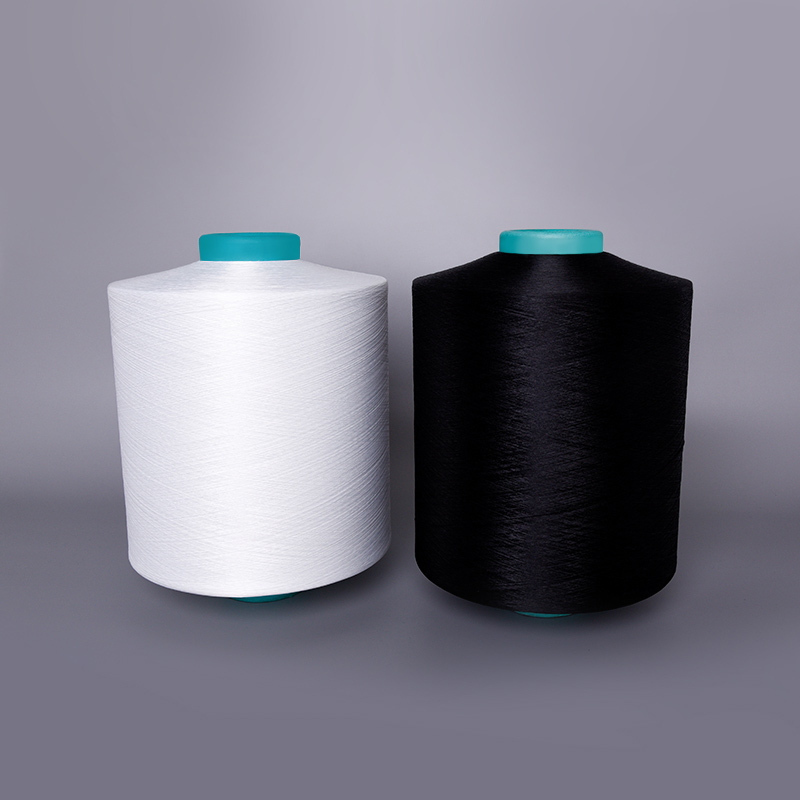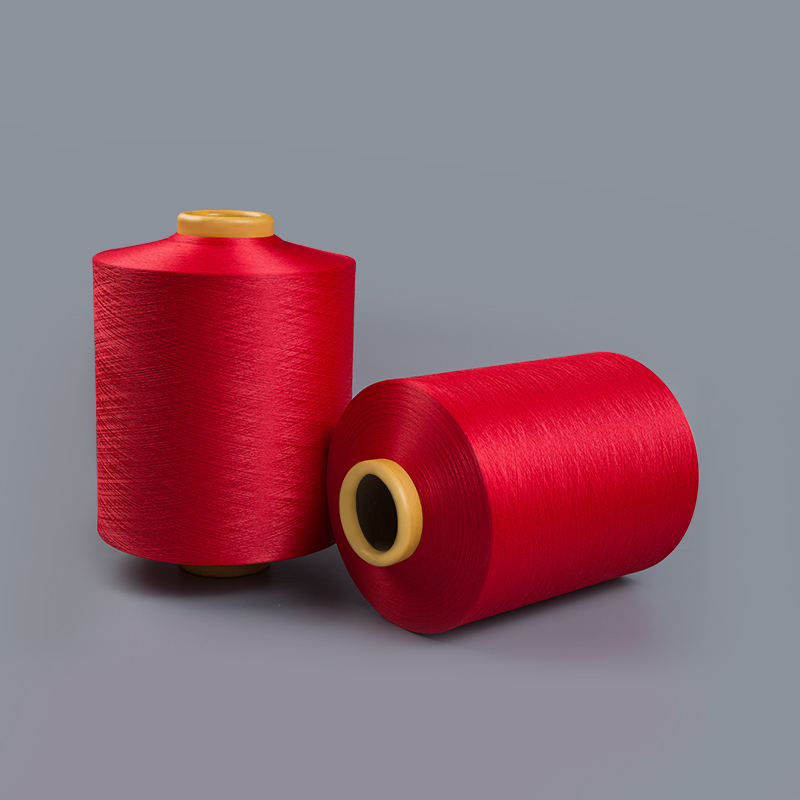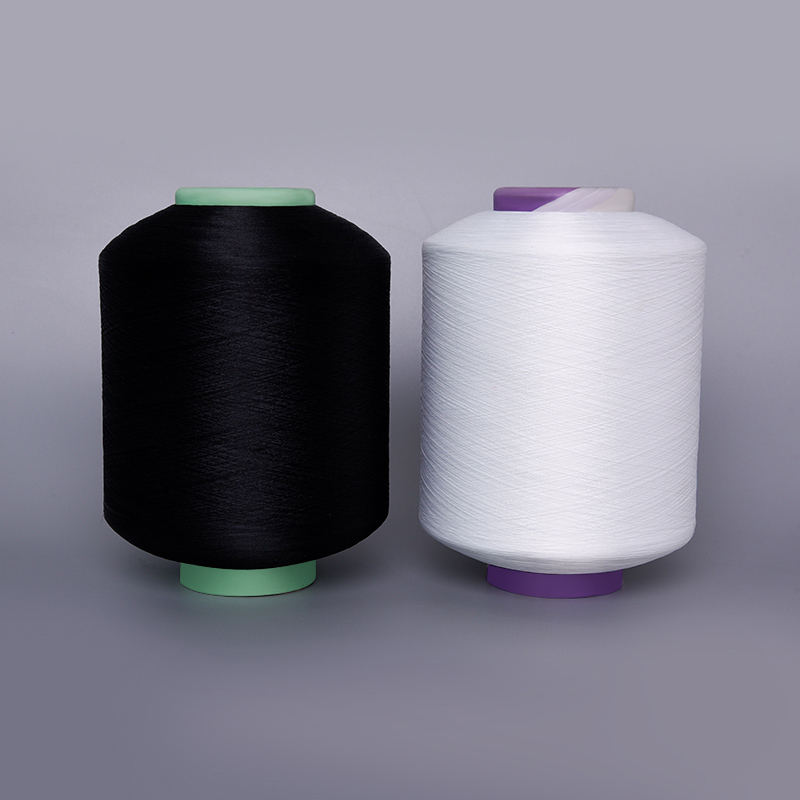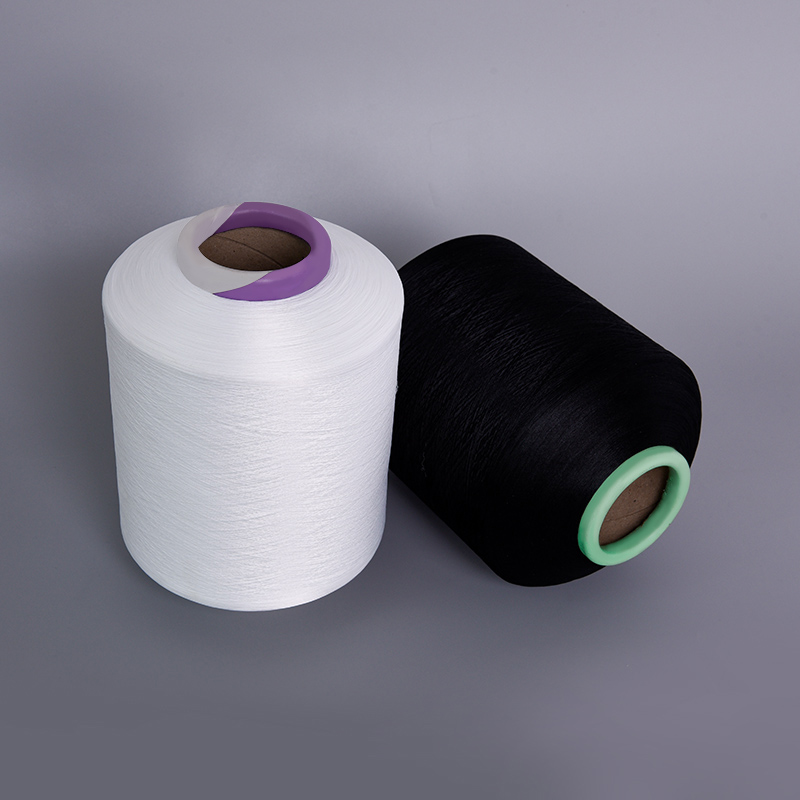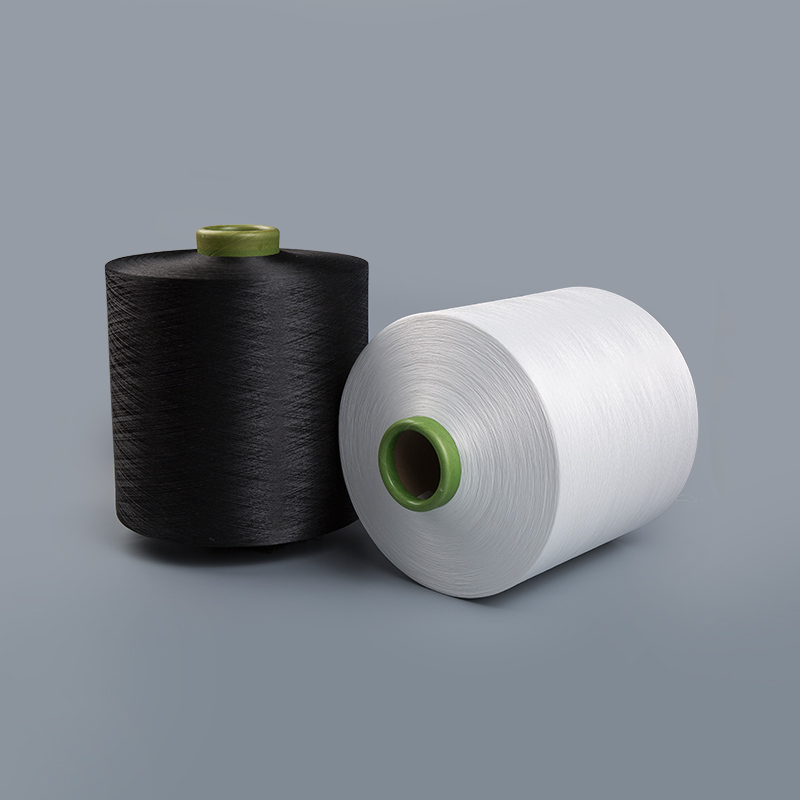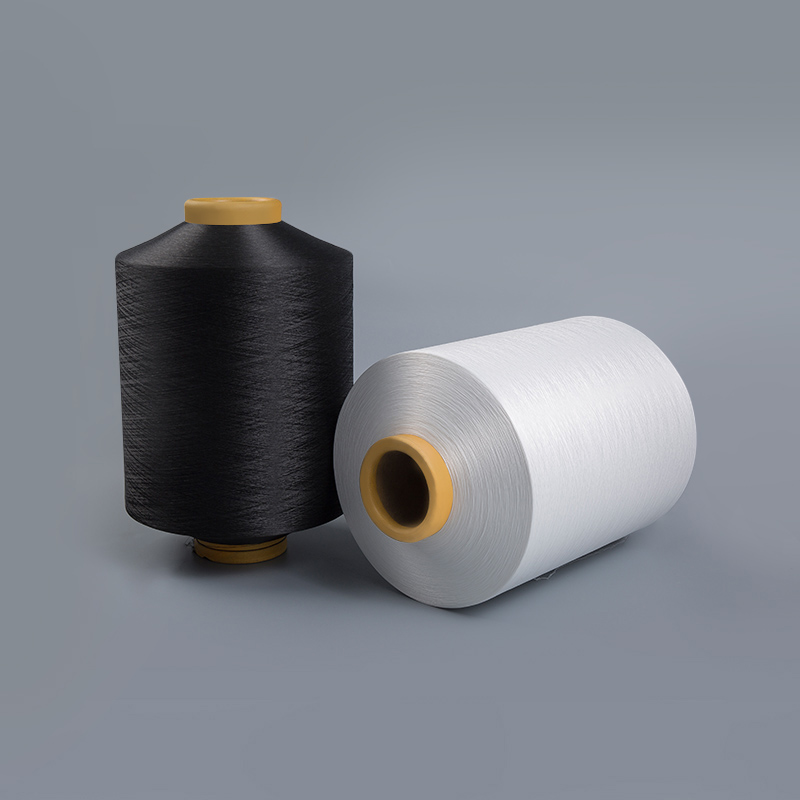Email us now!
The core of Polyester Mechanical Covered Yarn is made from strong, high-tensile polyester fibers that provide overall strength and durability to the yarn. The covering material, often made from elastic fibers such as spandex or nylon, provides flexibility and stretchability. The interplay between the tensile strength of the core and the elasticity of the covering determines how the yarn responds to elongation and shrinkage during processing. If the covering material is more elastic, the yarn will elongate more under tension, but it might also shrink more after being stretched due to the inherent properties of the elastic fibers.
The temperature at which Polyester Mechanical Covered Yarn is processed plays a significant role in both elongation and shrinkage. During weaving or knitting, exposure to high temperatures can cause the yarn to elongate as the fibers relax, but this process must be carefully controlled to prevent excessive shrinkage. High heat can lead to permanent shrinkage if the yarn is not heat-set or stabilized properly. Conversely, low temperatures can hinder the stretching of the fibers, limiting their elongation and elasticity. The temperature of the environment and machinery must be closely monitored to ensure that the yarn’s elongation and shrinkage are within the desired parameters.
The twist level in the construction of Polyester Mechanical Covered Yarn refers to how tightly the yarn is twisted during the manufacturing process. The amount of twist directly impacts the yarn's elongation properties. A high twist level increases the tension in the yarn, which can make it more resistant to elongation. However, higher twist levels can also lead to more shrinkage due to the inherent stress placed on the fibers during the twisting process. On the other hand, a lower twist level allows for more flexibility and stretch, potentially increasing elongation but at the risk of greater shrinkage if the yarn is not carefully handled during subsequent heat treatments or mechanical processing.
The moisture content of Polyester Mechanical Covered Yarn can significantly impact its elongation and shrinkage properties. Polyester fibers have a tendency to absorb moisture, which affects their overall structure and behavior during processing. When exposed to moisture, polyester fibers may swell, altering their dimensions and elongation properties. Moisture can cause the yarn to shrink as it dries, especially if the yarn is not adequately dried or heat-set. The level of moisture content should be controlled during processing to ensure that the yarn performs consistently and does not experience unexpected dimensional changes after washing or exposure to humidity.
The tension applied to Polyester Mechanical Covered Yarn during weaving or knitting is a critical factor that affects both elongation and shrinkage. Excessive tension can stretch the yarn beyond its elastic limits, leading to elongation, but it may also increase the risk of shrinkage if the yarn is then subjected to heat treatment or mechanical relaxation. Conversely, insufficient tension can result in a lack of elongation, causing the yarn to appear slack or lose its desired structure. Maintaining optimal tension throughout the processing stages ensures that the yarn elongates and shrinks in a controlled manner, resulting in a stable, high-quality final product.

